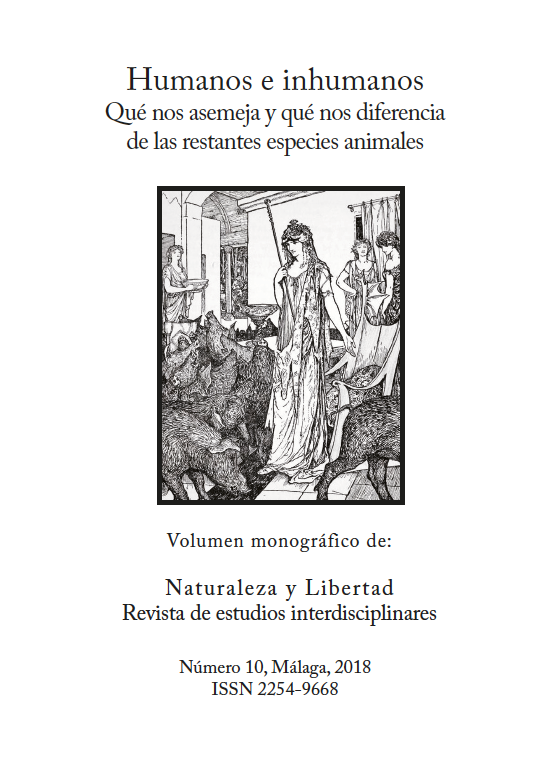Conocimiento humano y conocimiento animal
DOI:
https://doi.org/10.24310/nyl.v10i3.3667Keywords:
conocimiento animal, inteligencia, antropología, Köhler, Pavlov, Scheler, AristótelesAbstract
Resumen: Es común el el pensamiento actual la negación o incluso la falta de percepción de una posible diferencia esencial entre el conocimiento humano y el animal. En este texto se presentan algunas razones de esta situación, se plantea si es adecuado usar el término conocimiento tanto para los hombres como para el resto de los animales y, desde una perspectiva aristotélica, se recupera un debate de la antropología del siglo pasado en el que se pone de manifiesto un aspecto de la cuestión frecuentemente pasado por alto en nuestra época.
Palabras clave: conocimiento animal, inteligencia, antropología, Köhler, Pavlov, Scheler, Aristóteles.
Human knowledge and animal knowledge
Abstract: In contemporary thinking it is common the negation or even the inca-pacity of perceiving an essential difference between human and animal cognition. In this text, some reasons that explain this situation are offered, the problem of the opportunity of using the same term for animal and human cognition is re-vised and, from an Aristotelian perspective, a debate of last century philosophical anthropology is revisited that addresses an aspect of this problem frequently ig-nored.
Keywords: animal cognition, intelligence, anthropology, Köhler, Pavlov, Scheler, Aristotle.
Recibido: 29/08/2017 Aprobado: 5/11/2017
Downloads
Metrics
Downloads
Published
How to Cite
Issue
Section
License
Those authors who have publications with this journal, accept the following terms:
1. Copyright and licensing information are clearly described on the journal’s web site: all content published in Naturaleza y Libertad is open acces without limit, and are subject to the Attribution-NonCommercial-ShareAlike 4.0 International (CC BY-NC-SA 4.0) license. The full text of which can be consulted at https://creativecommons.org/licenses/by-nc-sa/4.0/
2. It is the responsibility of the authors to obtain the necessary permissions for the images that are subject to copyright. The authors whose contributions are accepted for publication in this journal will retain the non-exclusive right to use their contributions for academic, research and educational purposes, including self-archiving or deposit in open access repositories of any kind. The electronic edition of this magazine is edited by the Editorial de la University of Malaga (UmaEditorial), being necessary to cite the origin in any partial or total reproduction.
3. This journal allows and encourages authors to publish papers on their personal websites or in institutional repositories, both before and after their publication in this journal, as long as they provide bibliographic information that accredits, if applicable, your posting on it.
4. In no case will anonymous papers be published.





18.png)













